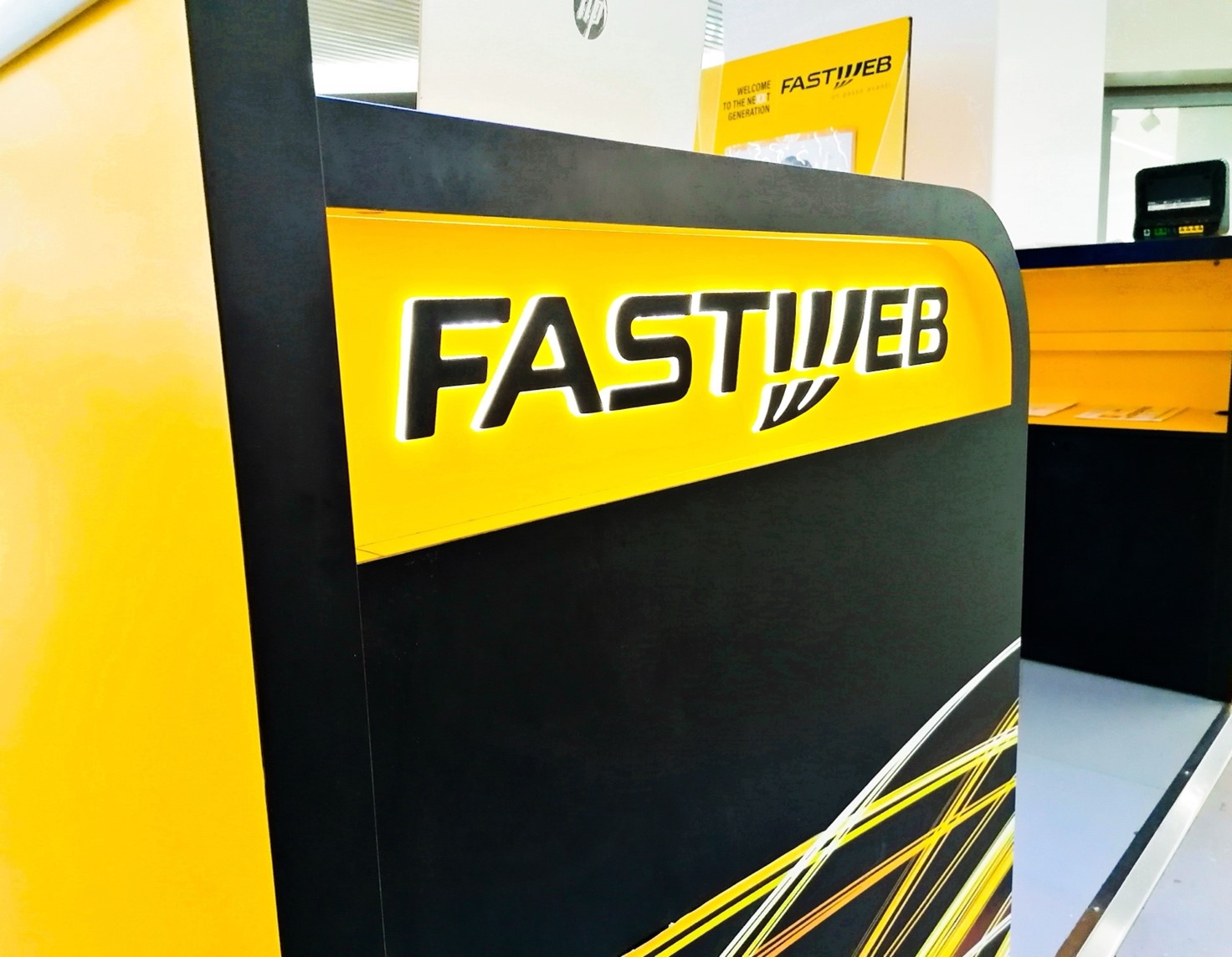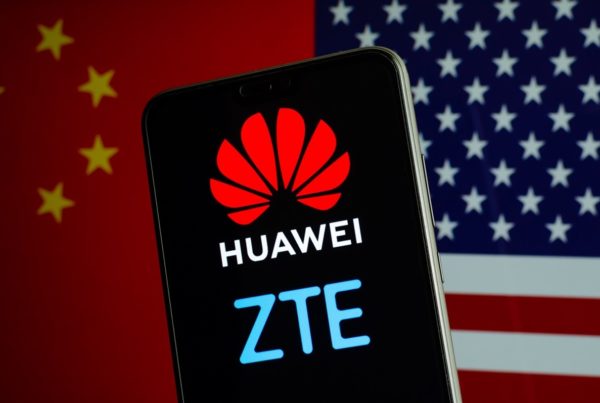At the end of 2022 only 5 infrastructure providers alongside 20 virtual operators (also known as MVNO) were active in the Italian mobile industry; conversely, there were lots of landline players. These data confirm the fragmentation of the Italian TLC market making it one of most unstable in the Old Continent. This fragmentation, induced by the need to ensure a greater fees competition, has prevented mobile operators from spreading and planning long term investments. Now more than ever, with the advent of 5G and 6G networks, TLC industry must be ready to face the substantial investments which will allow the sector to keep up with technological revolution. Furthermore, this approach could potentially allow Italian telecommunications to increase their revenues thereby enhancing their growth and development perspectives.
The merger between Fastweb and Vodafone could negatively impact the TLC
Swisscom and Vodafone merger agreements in Italy have sped up the measures taken to consolidate telecommunications industry in the country. Specifically, Swisscome is managing the acquisition of 100% of Vodafone assets in Italy aiming to boosting the merger between Vodafone Italia and Fastweb. The Groups have reached a fair preliminary acquisition agreement of 8 billion euros (cash) without incurring in any debt. As stated, and reported by the tycoon of Swiss telecommunications, the transaction is supposed to increase Swisscom value and revenues whose mail goal is to bolster the merger between Vodafone Italia and Fastweb so as to merge high quality “mobile and fixed infrastructures”: this approach will, then, create a leading group based on the convergence of companies’ respective businesses. Increased scale, more efficient cost structure, and potential synergies would allow it to increase the value of all shareholders.
 Vodafone is no longer part of the Italian market
Vodafone is no longer part of the Italian market
By acquiring Fastweb, Vodafone will no longer be in Italian market and the potential scenario would be completely different from what’s been initially proposed by Iliad, which is trying to acquire Italian assets of the English Group. The French group proposal of a joint venture has been later denied by Vodafone which has proposed a higher evaluation of the Italian assets of Newbury group. Cash payment and sale have been the preferable solutions over the higher evaluation especially because 8 billion euros offered by Swisscom, equal to 6 times EBITDAL, are 20% lower than what proposed by Iliad, which was assessing Italian assets at around 10.45 billion euros – equal to 7.8 times EBITDAL – and has offered a cash component of 6.6 billion euros.
The new Group would be the first one working on FTTH
According to analysts’ assessments, a merger between Vodafone and Fastweb should encounter fewer antitrust barriers compared to a joint venture between Vodafone and Iliad; nonetheless, the synergies would be lower and they won’t result in any market repair in the mobile segment. According to the latest figures reported in the Agcom Quarterly Observatory and updated as of September 30, 2023, the merger between Vodafone Italia and Fastweb would create the second-largest fixed broadband operator in the country (aggregated market share of 30.3%, with Vodafone at 16.5% and Fastweb at 13.8%, compared to Tim’s 38.4%), and a leading player in FTTH (combined market share of 36%, with Vodafone at 18.5% and Fastweb at 17.5%, compared to Tim’s 25.9%), with a strong impact on the fixed business segment, which is particularly lucrative: combined market share will be at 35.1%, with Vodafone at 17% and Fastweb at 18%, compared to Tim’s 41.5%.
 Consequences for Italian market
Consequences for Italian market
In a market that is continuously evolving, the merger between Fastweb and Vodafone would not change the landscape significantly. Vodafone is already the second-largest mobile operator in Italy, holding a share of 27.2%, slightly below Tim, which sits at 27.9%. Although the addition of Fastweb’s 3 million customers could potentially take over the new group ahead of Tim, the Italian market would remain volatile, fragmented, and competitive. Operators, such as Iliad and Sky Mobile, are ready to take advantage of any potential tariff issues arising from the newly formed group.
Consequences for fixed-lines networks
There would be a significant concentration in the fixed line networks: according to the latest figures from Agcom Observatory, Vodafone holds a market share of 15.9% in Wi-Fi lines, while Fastweb holds 13.8% only. The new group, resulting from their merger, would thus hold almost 30% of customers, a share still far from the leader Tim’s (40%), but significantly higher than the 14% of Wind Tre. In the medium – long term perspective, this consolidation could increase prices, although competition from new operators, such as Sky and Iliad, could positively impact the situation by stabilizing prices.
 Consequences for telecommunications companies
Consequences for telecommunications companies
The same dynamic applies to telecommunications services where both Vodafone and Fastweb play a leading role. Between last October and December, Vodafone registered 8% increase in its unit while Fastweb held a share of 35%. The merger between them would, thus, create a strong competitor for Tim which will, therefore, be called to react.
Vodaone selling its assets to Spain companies
As it is getting ready to exit the Italian telecommunications market, Vodafone has meanwhile finalized its assets divestiture to Spain: the English group has, indeed, sold its assets to Zegona Communications for a total value of 5 billion euros of which at least 4.1 billion euros will be in cash and up to 0.9 billion euros in refundable shares will be repayable within the next six years. Based on the agreement, Vodafone has to cede its services to Vodafone Spagna for a total value of 110 million euros. Vodafone will then offer Zegona a licensing agreement for the use of the Vodafone brand in Spain up to ten years. Additionally, further transitional and long-term agreements will be established for specific services such as contract access, IoT, mobile roaming, and many others. The transaction is expected to be closed in the first half of 2024.
Market’s mergers
According to a report from Centro Studi di Mediobanca, the agreement between Fastweb and Swisscom will result in having the second leading Italian fixed-line broadband operator with a strong positioning in the business segment. As stated by experts from Piazzetta Cuccia, the process is heading in the right direction because merging and acquisitions are the only ones to trigger a positive process of prices increase, which is pivotal for keeping telecommunications companies stable. Nor can we exclude future “three-way mergers” along with other forms of cooperation among industry’s operators. If that happened, it would reduce competition and consolidate the positioning of a few players in the reference market.
A study by Intesa Sanpaolo highlights, instead, some anomalies in the comparison between the offer from Iliad and that of Swisscom for Vodafone Italy. After an in-depth analysis, the analysts from the first Italian bank state the following: “we are surprised by the low price offered (unless we are missing some information), which is lower than the cash portion of Iliad.” So far, as not all details about negotiations are known, it is hard to make a precise comparison; furthermore, there could be the chance that other factors eased Swisscom, like the fact that Fastweb-Vodafone merger is expected to get the green light and final approval only from the Italian antitrust authority, while with Iliad the Brussels authority would have come into play, potentially making the operation more challenging.
According to Equita analysts, Fastweb-Vodafone merger lays the foundations for a “stabilization” which has a minor impact on market dynamics compared to the potential Vodafone-Iliad merge.” Most importantly, the French company run by the billionaire Xavier Niel “would be interested in spreading its positioning in the Italian market” and this, of course, shines the spotlight on Telecom Italia and its future to increase its positioning in the mobile sector. So, what’s the main point? The main point is that many mobile companies might decide to merge, non-only in our country but all over Europe, causing antitrust problems: according to the report conducted by Mediobanca, a more favorable stance for strategic companies could come after the election of the European Parliament, June, and once the new European Commission is appointed.
 Mergers could damage both TCL industry and mobile operators
Mergers could damage both TCL industry and mobile operators
The potential merger between Vodafone and Fastweb paves the way for new mergers and acquisitions in the telecommunications industry. The aggregation of Italian assets from the Swiss and English group doesn’t involve Telecom, WindTre and Iliad: two of them have declared not to be against M&A process. Before Fastweb, Iliad has proposed a potential merger with Vodafone (through a joint venture) but, unfortunately, its proposal has been rejected. The other option could be the partnership with Wind Tre, already having a joint venture with Zefiro Net, jointly owned, with the aim of sharing and managing their respective mobile telephony networks in less densely populated Italian areas. Zefiro Net holds the ownership and technical management – on behalf of the two partners – of the infrastructure enabling the provision of mobile radio services in an area where approximately 26.8% of Italian population resides.
Telecom, on the other hand, has a different and more cautious approach as it is still dealing with the spin-off of the company managing the network. As stated by Pietro Labriola, Telecom CEO: “till July 2024, once NetCo will be finalized, the only thing we can do is standing on the sidelines as it is hard to make important decisions while we are finalizing the divestment and trying to get the approval”..he went on saying: “in the near future we could lead the process but we first need to understand that if we keep staying on the sidelines, and it happens for sure, we could benefit from it; if we actively participate, we’ll have some other advantages but we first need to understand the potential scenario.”
Final thoughts
The potential merger between Vodafone and Fastweb represents only the first step in a broader consolidation process within the Italian telecommunications industry: an inevitable transition which will accelerate in the coming years. Operations that were previously hindered by competition constraints are now finding greater acceptance, even at the European level.
In the recently approved “Connectivity Package” by the EU Commission, Brussels has indeed expressed its readiness to consider loosening merger rules in the telecommunications industry to contribute to the development of 5G networks and consolidate the cross-border market.
According to the Commission document “The fragmentation of the market could affect operators’ ability to achieve the necessary scale to invest in future networks, particularly concerning cross-border services,” and “the question arises whether cross-border consolidation or different forms of upstream cooperation could enable operators to get scale without compromising downstream competition.”
Thus, it appears that Europe has also given the green light to the new wave of M&A activity looming on the horizon.





